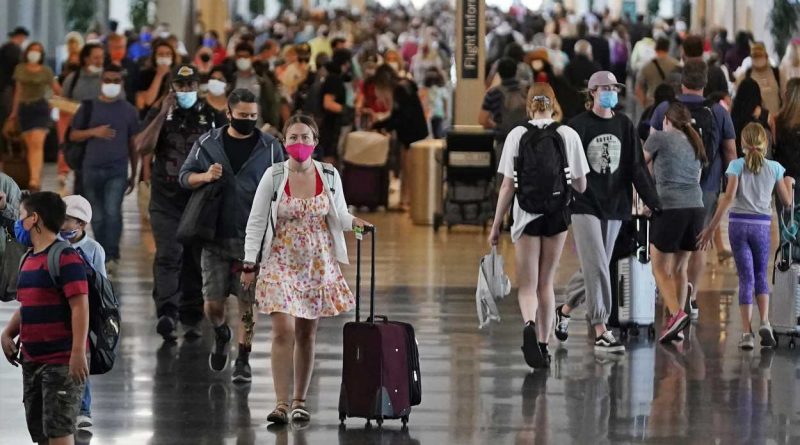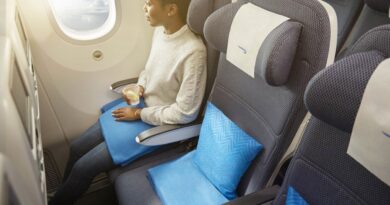Easier refunds and ending surprise fees: What Biden executive order means for airlines
President Joe Biden’s sweeping executive order aimed at cracking down on corporate consolidation and encouraging competition also includes some potential relief for airline passengers who’ve been hit with increased fees in recent years.
The order signed in a ceremony Friday directs the Department of Transportation to “consider issuing clear rules requiring the refund of fees when baggage is delayed or when service isn’t actually provided—like when the plane’s WiFi or in-flight entertainment system is broken,” according to a White House fact sheet on the order.
It also orders the agency “to consider issuing rules that require baggage, change, and cancellation fees to be clearly disclosed to the customer,” the document said.
Those fees have exploded over the past 15 years.
“The top ten airlines collected $35.2 billion in ancillary fees in 2018, up from just $1.2 billion in 2007,” the fact sheet said, while noting that the top four commercial airlines control almost two-thirds of the domestic market.
“Reduced competition contributes to increasing fees like baggage and cancellation fees. These fees are often raised in lockstep, demonstrating a lack of meaningful competitive pressure, and are often hidden from consumers at the point of purchase,” the fact sheet said.
Brian Deese, director of the National Economic Council, previewed the airline directives during the White House press briefing last week, and said it will “establish clearer upfront disclosure of fees” so that “consumers have more and better information and understanding of what they actually are paying for.”
Under existing DOT rules, passengers are entitled to a refund if bags are lost, but not if they’re delayed.
The order also calls for an update “on enforcement activities to address the failure of airlines to provide timely refunds for flights cancelled as a result of the COVID-19 pandemic” as well as “measures to support airport development and increased capacity and improve airport congestion management.”
In a statement, industry trade group Airlines for America said competition in the industry is already “robust,” and “has generated unprecedented levels of affordability and accessibility, benefitting the customer at every level.”
“This vigorous competition has led to historically low airfares – even as U.S. airlines transported a record 2.5 million passengers each day in 2019,” said the statement from the group, which includes American Airlines, Delta Air Lines, JetBlue Airways, Southwest Airlines and United Airlines.
Source: Read Full Article


